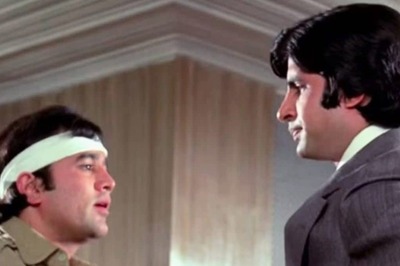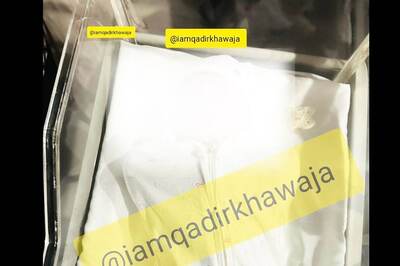
views
United Nations: The UN-Arab League envoy on the Syrian crisis, Kofi Annan, urged the Security Council to overcome its deadlock and unify to support his efforts to end the violence that has brought Syria to the brink of civil war, UN diplomats said on Friday.
Addressing a closed-door meeting of the 15-nation council via video link, Annan said the tougher their message in support of his efforts to negotiate a ceasefire, the greater his chances of ending the fighting, council diplomats told Reuters on condition of anonymity.
"The stronger and more unified your message, the better chance we have of shifting the dynamics of the conflict," an envoy said, summarizing Annan's remarks.
Annan suggested that Damascus' response to his six-point peace proposal has been disappointing so far, but his team is still talking with the Syrian government, the diplomat said.
Annan is pushing for a ceasefire, the deployment of monitors and political dialogue between the government and opposition.
Annan also said in his message that unified pressure from the Security Council on Syria has succeeded in the past, such as when it pressed Damascus to withdraw forces from neighboring Lebanon, envoys said. That withdrawal was completed in 2005.
Russia and China have twice vetoed Security Council resolutions condemning the government of Syrian President Bashar al-Assad for his year-long attempts to crush a pro-democracy rebellion. The United Nations says Assad's assault on protesters has killed more than 8,000 civilians.
Negotiations on a third draft resolution - this time written by the United States and calling for a ceasefire and humanitarian access for aid agencies - have stalled over disagreements about who in Syria should be the first to stop fighting and who is to blame for the conflict.
Speaking to reporters in Geneva after the briefing, Annan said: "I hope pretty soon that you will be hearing one voice from the council."
Syria's UN ambassador, Bashar Ja'afari, told reporters a technical team from Annan's office would arrive in Damascus on Sunday. Annan's spokesman, Ahmad Fawzi, said they would discuss the idea of deploying international monitors.
"Wait until Sunday and you will have good news," he said, adding that a "comprehensive political process" was under way.
United message
British UN Ambassador Mark Lyall Grant, president of the Security Council this month, told reporters that "all members of the Security Council pledged their full support (for Annan) and agreed that a united message from the Security Council would help his mission."
He added that consultations on a draft resolution continued. These discussions include the permanent veto-wielding council members - Britain, China, France, Russia and the United States as well as Morocco, the sole Arab member.
"Mr Annan did say that he would welcome a firm and united statement by the Security Council for his mission and certainly consultations are beginning on what form that might take," said Lyall Grant.
Asked if Annan's briefing improved prospects for ending the council's deadlock on Syria, U.S. Ambassador Susan Rice told reporters: "I think it's way too soon to know."
So far there have been no signs that the impasse will end. Assad insists the Syrian opposition must stop fighting first, while the United States, Gulf Arabs and Europeans have demanded that Assad and his much stronger forces must make the first move. Russia wants both sides to stop shooting simultaneously.
Russia also wants both sides to share equal blame for the conflict, a position Western and Arab nations reject.
Russia and China have said they believe Western and Gulf Arab countries are seeking Libya-style regime change in Syria, which they oppose. Damascus has close ties to Moscow and hosts Russia's only warm-water naval port outside the former Soviet Union.
Annan and UN envoys have been reluctant to publicly discuss his peace proposals and Syria's response to them.
One diplomat said this week that Assad's government had put two more conditions on a ceasefire in addition to the opposition taking the first step: foreign countries must stop arming and funding the rebels. Syria has accused Saudi Arabia and Qatar of backing the opposition.
If the opposition lays down its arms, Assad has promised them an amnesty, the diplomat said.




















Comments
0 comment